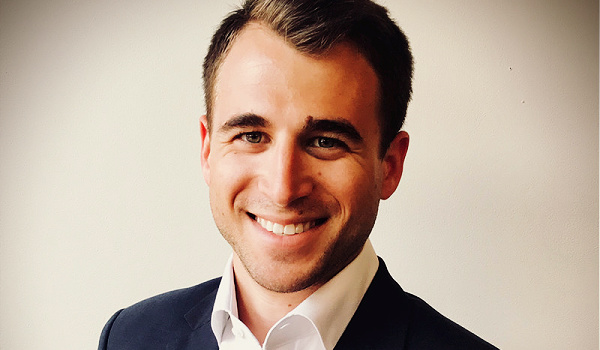Sarson Funds, Inc.
Decentralized finance, or DeFi as it’s known, has taken the cryptocurrency industry by storm. While this burgeoning market segment only really began to take shape over the past year or so, it has already begun to disrupt Wall Street. One of the firms that has been at the forefront of this movement is Sarson Funds, which oversees cryptocurrency and digital asset investment funds. Blake Richman, portfolio manager at Sarson, took some time to discuss DeFi and Sarson’s role as an early mover in this booming space.
Richman and John Sarson, CEO and co-founder of Sarson Funds, began sharing thoughts on DeFi in 2017 and together decided to launch a DeFi strategy fund in October 2020. Sarson’s DeFi fund is currently open to accredited investors, but the firm is currently exploring ways in which they can market it to the public. The fund comprises the “DeFi blue chips,” Richman explained, including the likes of:
- Aave
- Maker
- Yearn.finance
- Uniswap
- SushiSwap
In addition to news research into the best of the best, Blake provided a more in-depth perspective into his portfolio management strategy at Sarson Funds. Beyond just investing in DeFi market leaders, the investment teams also fully believes in the projects they invest in and demonstrates their confidence through participation in using some of the protocols that it backs. Not only does this help to generate yield on top of the long term returns they are already generating, but it also provides them an opportunity to fully understand these projects, which further enhances the Sarson Funds brand by being an educational leader in this industry. The Sarson team engages in yield farming as well as participates in the governance and voting on protocol features and project roadmaps. These are the cases that have paved the way for greater financial inclusion and already started to disrupt traditional finance.
“The strength of Sarson Funds is that our team of portfolio managers are all cryptocurrency natives and get involved in decentralized communities. They are able to help out with the projects and guide the investment outcomes, which also impacts the investment case, and which is very unique to cryptocurrencies,” explained Richman.
Hybrid Model
While DeFi funds are all the rage lately, with the likes of investment bank Goldman Sachs even dipping its toe in the decentralized waters with its version of a DeFi-fueled ETF, Sarson takes a different approach. Many of the funds out there today are index products, buying and holding and looking to ride the tide of the DeFi craze for yield. Sarson takes a step beyond just the capital component with a hybrid approach through comprising a hedge fund and venture capital model. Not only is there investing and trading involved, but they are also providing liquidity and engaging with the DeFi community.
Sarson pioneered the move into the DeFi space in December 2020/January 2021, before MicroStrategy did its convertible bond offering and just as Sushiswap was beginning to take off. They are in it for the long haul and are investing with a view of 48 months out or longer. That’s when “this stuff really gets exciting,” said Richman.
Indeed, DeFi remains in the very early innings, with total value locked (TVL) of $114 billion. If you ask Richman, decentralized finance couldn’t have come soon enough. He explained,
“Finance is a pretty walled off area for development. From a technology perspective, there is not a lot of data sharing or open APIs. There are no sandboxes to attract value and try new things. What DeFi has given us over the past 24 months is this sandbox to develop it and try new financial apps. While it’s an attractive value and produces revenue today, it’s still in a very young state.”
For example, deploying $1 billion into DeFi is 1% of TVL, which is a lot, Richman noted, adding:
“DeFi needs more liquidity before it becomes investable for the types of institutions that will be using the fruit of the labor. It is still exciting, and a lot has been accomplished. But our view is that the price of tomorrow is more about: How do we manage risk in the near term while flexibly positioning ourselves for the long term?”
The DeFi space continues to evolve and there will be even more changes in the coming years. In part two of our interview with Blake, we will hear his thoughts on Ethereum, bitcoin and the role of regulation as the DeFi market matures.








